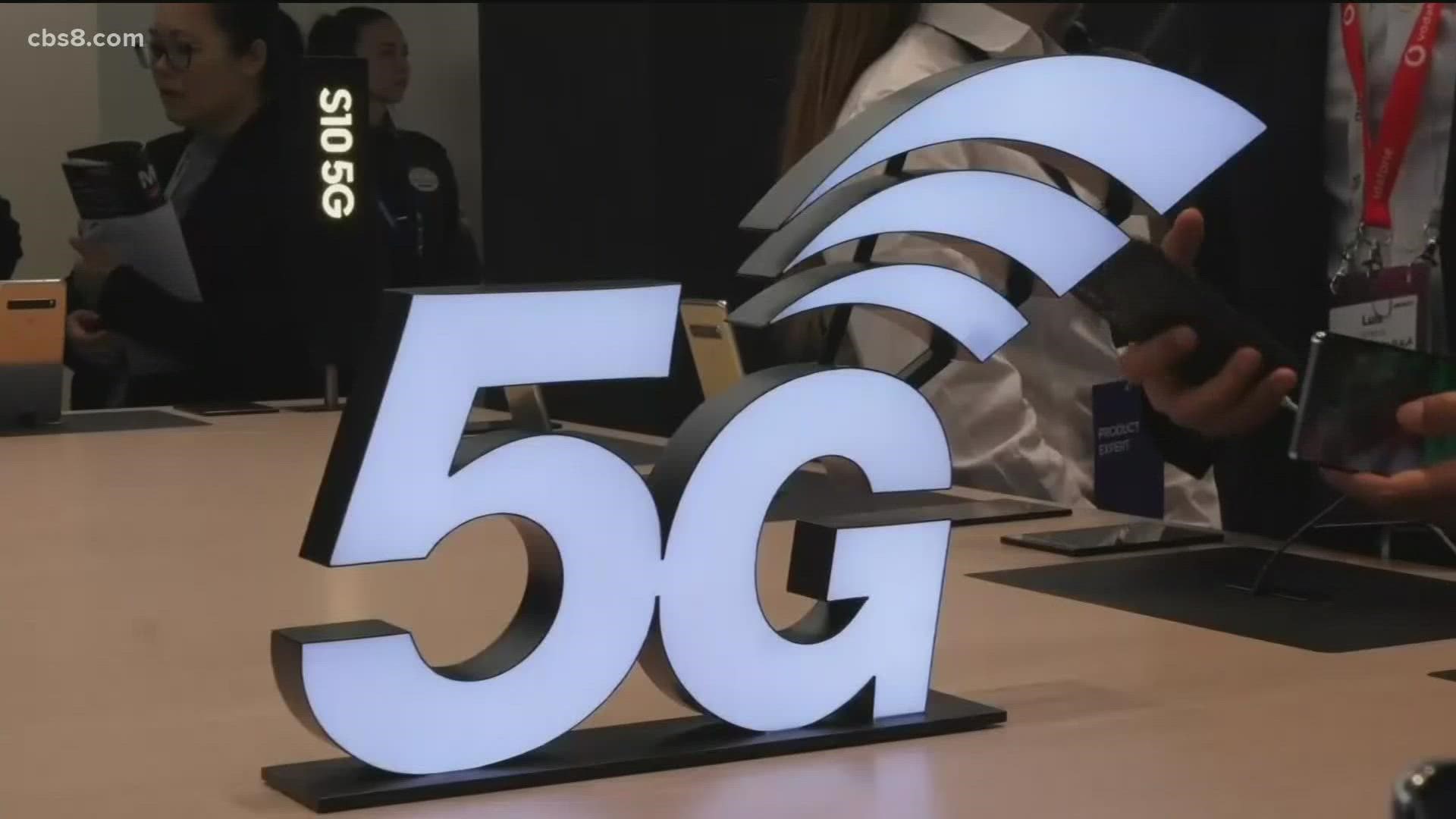SAN DIEGO COUNTY, Calif. — By the end of this year, all major cellular companies plan to shut down their 3G networks to make room for the much faster 5G cell network.
It's a sweeping change that will impact not only older cell phones that use 3G but other technology as well, from home security systems to emergency medical alert devices.
The FCC said that it's been working since 2019 to educate the public about this impending 3G phase-out, and what this will mean for older cell phones and other devices.
However, it still appears to have caught some of us off-guard.
"I haven't seen something this impactful before: it is a big change," said Tony Heupel, owner of iTtech iPhone & MacBook Repair in Clairemont.
Ordinarily, he is a big believer in keeping and maintaining older forms of technology.
"There's no need to throw stuff away just because something new came out," Heupel said. "You can use it for ten more years,"
That is, except when it comes to the ongoing roll-out of 5G, the latest advance in cellular technology, promising far faster broadband speeds.
"I's going to be amazing," Heupel said, "The future is here,"
It's a future, though, that will not include 3G service.
U.S. cellular companies are shutting down 3G this year to make room for the updated technology, which means that devices that use 3G will effectively become obsolete.
"They're going to have to upgrade to something similar," Heupel noted, "But with more current technology."
Not only will 3G cell phones not operate on the 5G system, even for emergency 911 calls, but this phase-out will also impact some car GPS navigation programs; some security systems; and even some emergency medical alert devices used by older Americans.
"The level of gravity is very high for us," said tech expert, Tom Kamber of AARP.
He says that many Americans are unaware and not prepared for the wave of 3G devices that will soon lose connectivity: devices like medical alert bands or pendants that millions of seniors, and their families, rely on.
"Older Americans are most at risk from this transition because they're the group that tends to hold onto devices a little bit longer," Kamber said.
It's a trend that Heupel sees first hand.
"Older people do like to save their stuff until it is obsolete," he said.
Kamber added that now is the time to examine whether some changes will need to be made.
"The first thing we want them to think about is just this is a moment to take a take an hour and just do a check through of what kind of connectivity you have in your house that is mobile based," he said.
If you're not sure if you will be impacted, contact your service provider.
In many cases, those providers are now reaching out to their customers, to let them know whether they'll need to upgrade their devices.
WATCH RELATED: How will new 5G networks affect flights to and from San Diego? (January 2022)

